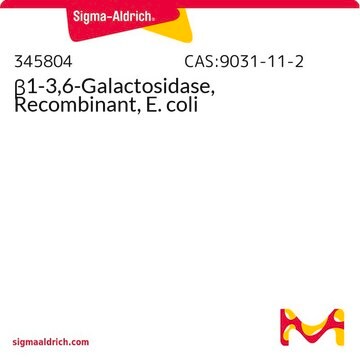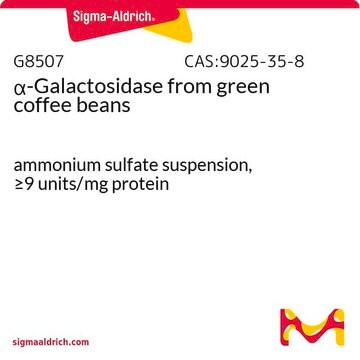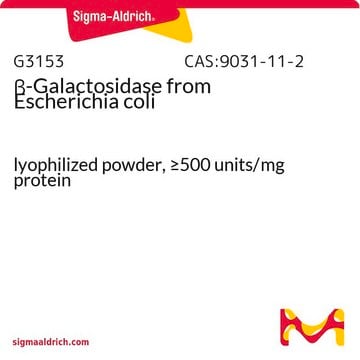G6637
β-Galactose Dehydrogenase from Pseudomonas fluorescens
recombinant, expressed in E. coli, ammonium sulfate suspension, ≥50 units/mg protein (biuret)
Synonym(s):
D-Galactose:NAD+ 1-oxidoreductase
About This Item
Recommended Products
biological source
Pseudomonas fluorescens
Quality Level
recombinant
expressed in E. coli
Assay
0.5—2.0 mg protein/mL (biuret)
form
ammonium sulfate suspension
specific activity
≥50 units/mg protein (biuret)
color
white
suitability
suitable for enzyme test
application(s)
life science and biopharma
shipped in
wet ice
storage temp.
2-8°C
Gene Information
Pseudomonas fluorescens ... gdh(533113295)
Looking for similar products? Visit Product Comparison Guide
Application
Biochem/physiol Actions
Unit Definition
Physical form
Storage Class Code
11 - Combustible Solids
WGK
WGK 3
Flash Point(F)
Not applicable
Flash Point(C)
Not applicable
Personal Protective Equipment
Choose from one of the most recent versions:
Already Own This Product?
Find documentation for the products that you have recently purchased in the Document Library.
Customers Also Viewed
Articles
Instructions for working with enzymes supplied as ammonium sulfate suspensions
Our team of scientists has experience in all areas of research including Life Science, Material Science, Chemical Synthesis, Chromatography, Analytical and many others.
Contact Technical Service











